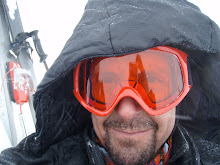

Despite my effort to stay present in Sweden, thoughts of leaving creep in, I continue to reflect.

As I attempt to work (and play) right up until departure, I have considered my progress quite a bit…questions like, will I leave Sweden having completed ‘enough?’ While I feel good about my efforts, my summer of writing and analyzing will be the real proof of whether or not I have done ‘enough.’ One of the things I have learned in my whole Fulbright experience is that one must work for everything, no free lunch with this experience. Without initiative there is nothing!

When I think about all the people I have tried to reach out to, all the leads I have tried to track down, all the possibilities I have explored, I get a little exhausted. It has been a year of me trying to make my way. Thus, my reflection: initiative—it takes an incredible amount of initiative to make things happen. One must be humble and ask for help, ask for opportunity, ask to participate…My whole being here is based, in part, on my not being afraid to ask Marie if I could come and work with the Swedish Friuftsliv research team…and when I think about it, it still amazes me that she said yes….It is slightly embarrassing to think of all the dumb questions I have asked a long the way in the effort to figure things out.

I was in Stockholm over the weekend. I organized a Fulbright excursion to Tyresta National Park…

A park within an hour’s commute from Stockholm, one commuter train and one bus. Here is Ryan and Jimmy on the commuter train:

A National Park within real access to a city of over 1 million people—how great is that!? The irony, however, is that national parks are not the true story of access in Sweden. The universal access law of allemansrätt is the real story. One does not need National Parks for access to nature. Swedish National Parks share a common history with American national parks with an original mission as serving a sort of museum-like role, with a basic intent of protecting nature from people. And while I am care deeply about nature preservation, I am actually way more interested in nature access. I believe that our history of separating people from nature is a part of the environmental problems we face today. We don’t see our selves as a part of nature, but rather simply an observer at best, or a threat at worst.
 Of course when we watch oil pour out into the Gulf of Mexico, it is hard not to see our role as one of destruction. In order to counter this, we I really believe that we need daily and regular access to nature—perhaps the most important reflection of my studies here is value in regular and accessible nature. I’m glad there are people ready to work hard to save our ‘monumental’ nature, but currently, I am much more interested in saving our common nature, nature that we have a chance to be a part of, daily.
Of course when we watch oil pour out into the Gulf of Mexico, it is hard not to see our role as one of destruction. In order to counter this, we I really believe that we need daily and regular access to nature—perhaps the most important reflection of my studies here is value in regular and accessible nature. I’m glad there are people ready to work hard to save our ‘monumental’ nature, but currently, I am much more interested in saving our common nature, nature that we have a chance to be a part of, daily.

Stockholm had its' usual interesting vibe...





 This photo is from the day I 'helped' Patrick put his boat in the water for the season, we took a ferry out to the islands and then rode the boat back into Göteborg.
This photo is from the day I 'helped' Patrick put his boat in the water for the season, we took a ferry out to the islands and then rode the boat back into Göteborg.

























